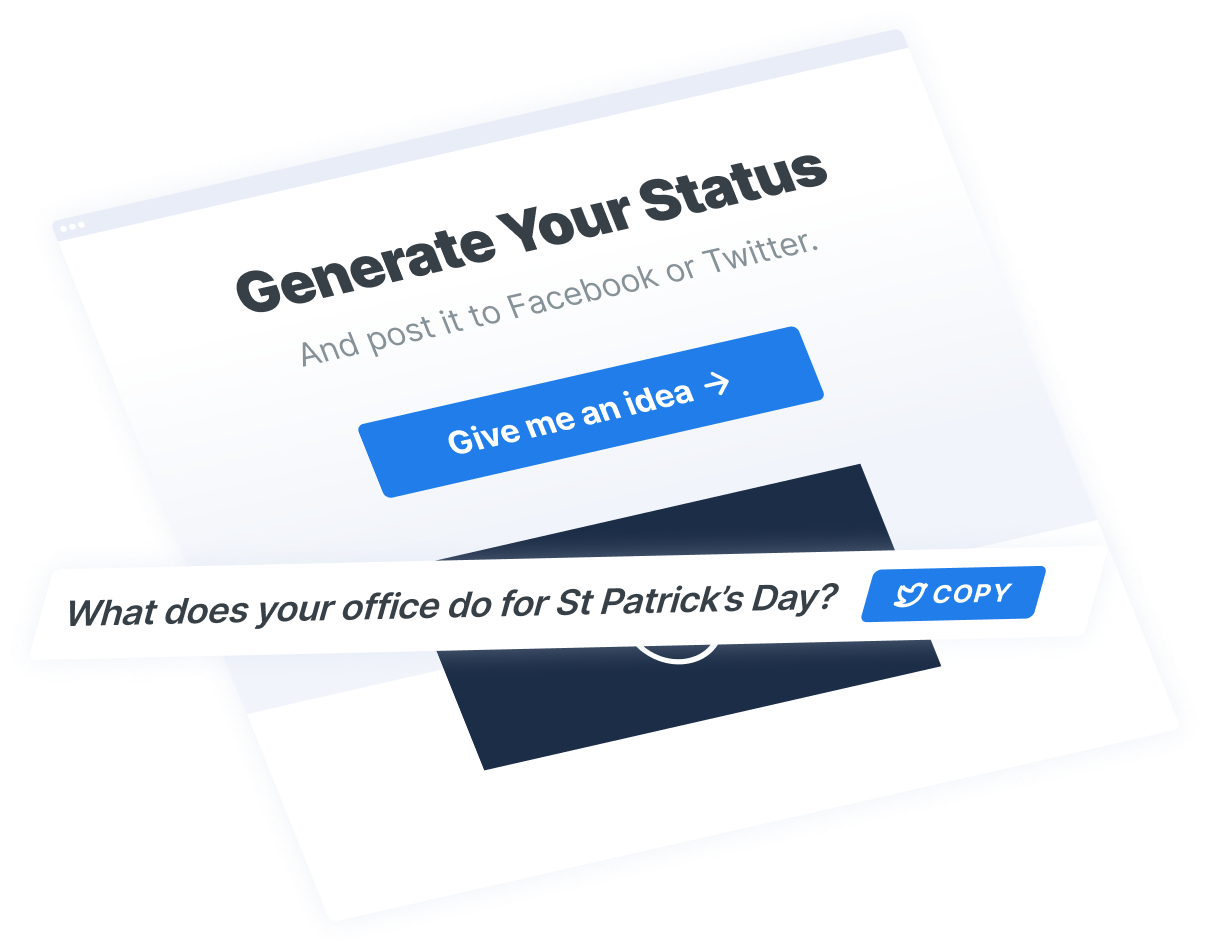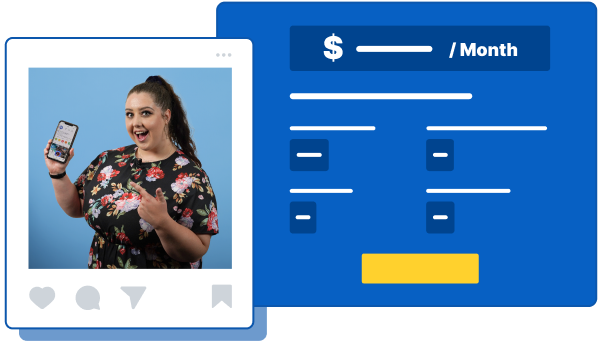- Home
- Blog
- Social Media Social Gets Personal: Name-Segmented Facebook Advertising
Social Gets Personal: Name-Segmented Facebook Advertising
-
 4 min. read
4 min. read
-
 WebFX Team
WebFX Team Digital Marketing Agency
Digital Marketing Agency
- The WebFX team is made up of more than 450 subject matter experts in digital marketing, SEO, web design and web development, social media, and more. Together, they’ve helped WebFX’s clients earn more than $3 billion in revenue from the web — and that’s just in the past five years. @webfx
Social media has been getting a whole lot more personal.  If you have a “common” first or last name, your last few visits to Facebook may have seemed very personalized. For the past few months, many brands that specialize in personalized products (think t-shirts, mugs, and greeting cards), have rolled out a series of creepy ads on Facebook.
If you have a “common” first or last name, your last few visits to Facebook may have seemed very personalized. For the past few months, many brands that specialize in personalized products (think t-shirts, mugs, and greeting cards), have rolled out a series of creepy ads on Facebook.
The social giant has since recognized these invasive ads, and no longer allows “name segmented” advertising. However, that hasn’t stopped a few wayward brands. Here’s how they do it, ways to decrease the likelihood of being targeted, and the huge risks for advertisers who don’t comply with the ban.
Lists Purchased from Third Party Providers
Much of who we are online is available as public information, and in the case of third-party providers, your “personal” email is no exception. Advertisers seeking to skirt Facebook’s ban are buying first/last name custom lists built on those email addresses. (The act of buying email lists also directly violates its terms and conditions.) If your last name is “Smith,” you may suddenly find ads for custom mugs featuring your name on your news feed because an advertiser bought your email (that includes your last name) from a third party site.
How to avoid inclusion: Hindsight is 20/20, and for third party sites that already have your information, there is nothing you can do. Moving forward, read the fine print. Look for disclosures that read along the lines of “we promise never to sell your information, including your email address, to third party providers.”
Open Graph Searches and Name Fan Pages

From cookies that track your online purchases to “fan” pages you join, you are a target. Advertisers who participate in this more illicit form of ads create custom lists based on Facebook user identities (UIDs) and manually enter your information in ads manager. How to avoid UID inclusion: Make your profile private so no one can comb through it to see your interests.
Disable the ability to be “searched” for on Facebook. (However, this will also disable the ability for others to friend request you.). Finally, don’t join name-targeted groups or accept friend requests from people you don’t know.
Name aggregating is another way to access your UID, and is done by “friending” people with same first/last names.
Tracking Your Recent Product Searches
This method is the least used, but seems the most invasive. Users of this method are usually highly technologically sophisticated.
In short, they track what you put into shopping carts or products you customize, and use that content in an ad. Until recently, mobile app use prevented this type of targeting. However, Facebook recently released a direct feature called Website Custom Audiences (not widely available) that means mobile or not, they can track you.
How to avoid tracking: Disappointingly, there is not much you can do to avoid this type of targeting unless you’re willing to give up online shopping. Most websites install cookies for tracking, and their advertisers turn that into fair game for ads. 
The Risks of Name-Segmented Advertising
If you’re reading this going, “sounds like a good way to make a profit,” advertisers beware!
If Facebook catches you using this type of targeting (which violates its terms and conditions), it will shut down your ad, disable and block your list, and prevent you from adding those users to future lists. Facebook may also potentially suspend your account, removing your Page. This strategy was a novel idea at first, but evolved into a high risk scenario that ultimately creeps out potential customers.
In our opinion, it simply isn’t worth the risk.
-
 The WebFX team is made up of more than 450 subject matter experts in digital marketing, SEO, web design and web development, social media, and more. Together, they’ve helped WebFX’s clients earn more than $3 billion in revenue from the web — and that’s just in the past five years.@webfx
The WebFX team is made up of more than 450 subject matter experts in digital marketing, SEO, web design and web development, social media, and more. Together, they’ve helped WebFX’s clients earn more than $3 billion in revenue from the web — and that’s just in the past five years.@webfx -

WebFX is a full-service marketing agency with 1,100+ client reviews and a 4.9-star rating on Clutch! Find out how our expert team and revenue-accelerating tech can drive results for you! Learn more
Twitter and Facebook Status Generator
Finding engaging social media content for your business can be difficult. Use our tool to quickly find ideas and post directly to your page.
Give Me an Idea

Social Media Cost Calculator
Use our free tool to get a free, instant quote in under 60 seconds.
View Social Media CalculatorTwitter and Facebook Status Generator
Finding engaging social media content for your business can be difficult. Use our tool to quickly find ideas and post directly to your page.
Give Me an Idea





